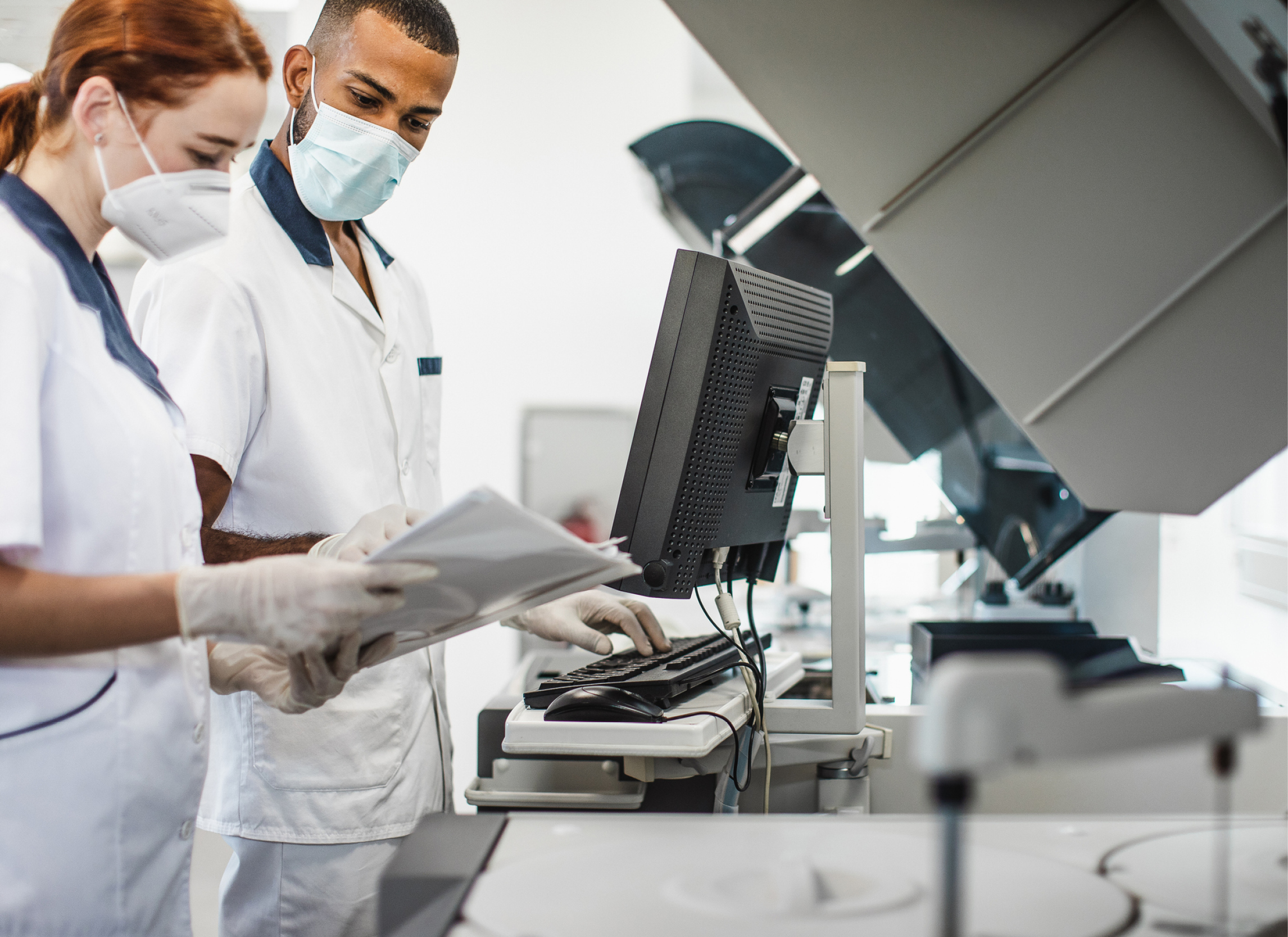CMS Provides New Guidance on When International Labs Must Seek CLIA Certification
Recently released Centers for Medicare and Medicaid Services guidance shares when CLIA regulations apply to international labs.

For non-US healthcare providers interested in performing clinical laboratory testing on samples collected in the US, new guidance published by the Centers for Medicare and Medicaid Services (CMS) on May 10 is a must-read.1 The guidance covers what your organization must do to get regulatory clearance to perform US-related testing—namely, whether it must obtain certification under the Clinical Laboratory Improvement Amendments (CLIA) and, if so, how. Here are the key takeaways from the new guidance:
CLIA Certification Requirements and International Labs
Congress passed CLIA in 1988 to strengthen federal oversight of clinical labs and establish quality standards to ensure accurate and reliable lab testing. The law applies to all labs that test “materials derived from the human body for the purpose of providing information for the diagnosis, prevention, or treatment of any disease or impairment of, or the assessment of the health of, human beings” (42 U.S.C. § 263a(a)).2 The first step in compliance is to obtain CLIA certification from CMS.
Labs located outside the US or its territories with no testing ties to the US don’t have to worry about CLIA. However, it becomes an issue when an international lab performs tests on US specimens. The new CMS guidance clarifies that such labs are subject to CLIA, including certification requirements, when:
- they perform the tests referred to in Section 263a(a) above,
- those tests are referred by a facility or authorized person in the US or US territories, and
- the results of those tests are returned to such a facility or authorized person.
In short, CLIA applies any time testing is done on human specimens collected in the US and its territories—although not to specimens from other countries. Even if the testing is performed by an international lab, that lab is subject to CLIA. International labs may also be subject to additional state regulations.
Research Testing by International Labs Subject to CLIA
CLIA Certification and Accreditation of International Labs
The new CMS guidance also provides clarification on the CLIA certification process as it pertains to international labs. To begin, you need to understand the five basic types of CLIA certificate:4
- Certificate of Waiver (CoW), which allows a lab to perform waived tests—those considered so simple that they involve little risk of error when performed correctly. Examples include fecal occult blood tests, pregnancy tests, and some urine tests.
- Certificate for Provider-Performed Microscopy Procedures (PPMP), which are a subset of moderate-complexity tests that use a bright-field or phase-contrast microscope. Examples include urine sediment examinations or potassium hydroxide (KOH) preparations. PPMP is a unique certification available to labs in which a physician, mid-level practitioner, or dentist performs only PPMPs and waived tests during a patient’s visit. These labs must meet CLIA quality standards for moderate-complexity testing.
- Certificate of Registration (COR), a temporary certificate (lasting up to two years) awarded to labs applying for a COC or COA that permits the lab to perform moderate- and high-complexity tests until it has been surveyed and verified as in compliance with CLIA regulations.
- Certificate of Compliance (COC), which labs receive when they pass an on-site inspection verifying their compliance with CLIA regulations. Inspections are performed every two years on COC labs that perform moderate- and high-complexity tests.
- Certificate of Accreditation (COA), which is awarded by a CMS-approved, non-profit accrediting organization to labs that perform moderate- and high-complexity tests and meet the organization’s standards. Such standards must be approved by CMS as equaling or exceeding CLIA program requirements. COA labs are inspected by the accrediting body once every two years, with CMS performing a validation survey within 90 days of the inspection.
The guidance explains that international labs may seek CLIA certification via an accrediting organization and that those not seeking CLIA certification via approved organizations should apply for the level of CLIA certification appropriate for the testing they perform.
In terms of paperwork,5 international labs must first email CLIA-IOIntake@cms.hhs.gov to begin the CMS International Laboratory CLIA Certification Process.1 Then, they must complete Form CMS-116,6 the Clinical Laboratory Improvement Amendments (CLIA) Application for Certification, and mail it to the appropriate CLIA State Agency.7
Takeaway
Labs located outside the US may still be subject to CLIA certification and quality control standards. The new CMS guidance helps explain when CLIA applies to international labs and, if so, what those labs should do to seek certification, making it must-read material for lab leaders and their staff.
References:
- https://www.cms.gov/regulations-and-guidance/legislation/clia/downloads/internationallabwebpage.pdf
- https://www.govinfo.gov/content/pkg/USCODE-2011-title42/pdf/USCODE-2011-title42-chap6A-subchapII-partF-subpart2-sec263a.pdf
- https://www.cms.gov/regulations-and-guidance/legislation/clia/downloads/research-testing-and-clia.pdf
- https://www.hhs.gov/guidance/sites/default/files/hhs-guidance-documents/cliabrochuretextonly.pdf
- https://www.cms.gov/regulations-and-guidance/legislation/clia/how_to_apply_for_a_clia_certificate_international_laboratories
- https://www.cms.gov/Medicare/CMS-Forms/CMS-Forms/Downloads/CMS116.pdf
- https://www.cms.gov/Regulations-and-Guidance/Legislation/CLIA/Downloads/CLIASA.pdf
Subscribe to view Essential
Start a Free Trial for immediate access to this article